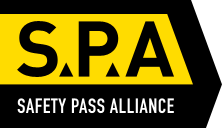Worker suffers chemical burns at electropolishing company
- Date:
- 7 April 2016
An electropolishing company based in Hampshire has been fined after a worker suffered chemical burns.
Basingstoke Magistrates’ Court heard how Keith Brown, a 51-year-old worker at Poligrat (UK) Limited was told by his manager to dispose of some waste cleaning chemicals at their Aldershot site. The method agreed was to pour caustic pearl granules into the top of an intermediate bulk container (IBC) containing acids to help neutralise the chemicals inside.
It was during this process that an exothermic reaction occurred, the container became unstable and erupted over the worker, throwing him to the ground.
His glasses were blown off and he suffered alkaline burns to his eyelids and ulcers to both corneas, including grazing and burns to his legs.
An investigation by the Health and Safety Executive (HSE) into the incident which occurred on 13 February 2015 found that the activity and substances used in the process were not suitably or sufficiently risk assessed.
After the hearing, HSE inspector Andrew Johnson said: “The use of an IBC as a reaction vessel was wholly inappropriate. IBC’s are designed for the storage of a range of substances. They are not designed for use as a chemical reactor. Other safer reasonably practicable options were available, such as using a waste management company to remove and safely dispose of the chemicals.”
Poligrat (UK) Limited, of Waverley Lane, Farnham, Surrey, pleaded guilty to breaching Section 2(1) of the Health and Safety at Work etc Act 1974, and Regulation 3(1) of the Management of Health and Safety at Work Regulations 1999, and was fined £8,000 and ordered to pay costs of £1,072.
For further information on COSHH visit: http://www.hse.gov.uk/toolbox/harmful/coshh.htm[1]
Notes to Editors:
- The Health and Safety Executive (HSE) is Britain’s national regulator for workplace health and safety. It aims to reduce work-related death, injury and ill health. It does so through research, information and advice, promoting training; new or revised regulations and codes of practice, and working with local authority partners by inspection, investigation and enforcement. www.hse.gov.uk[2]
- More about the legislation referred to in this case can be found at: www.legislation.gov.uk/
 [3]
[3] - HSE news releases are available at http://press.hse.gov.uk



















